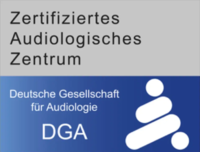Parotid gland stones (sialolithiasis) are a disease that causes chronic pain in the gland and an increase in size due to swelling. The pain increases when eating. Different glands can be affected, but submandibular gland stones are most often diagnosed. In the absence of timely medical care, the disease can be complicated by an abscess – a pustule in the area of the gland blocked by a stone. In order to avoid complications, you can undergo treatment of parotid gland stone in Germany.
Content
- Conservative therapy
- Surgery
- Minimally invasive treatment
- Why is it worth undergoing treatment in Germany?
Conservative therapy
Conservative therapy helps doctors to fight symptoms of the disease and its complications, but cannot eliminate the cause of their development. Stones do not disappear as a result of such therapy.
Doctors prescribe the following treatments:
- non-steroidal anti-inflammatory drugs to reduce pain;
- massage to eliminate swelling;
- antibiotics – in case of infectious complications, the signs of which are pain, redness, pus and swollen lymph nodes.
Surgery
The classic treatment option, which involves the removal of parotid stones through the skin incision. Such operations are a thing of the past in Germany. They are performed very rarely: for example, if the treatment is carried out in the presence of complications or there is no possibility to remove the stone in another way.
In countries with poor medicine, surgical treatment is still considered the main one, with all its disadvantages: trauma, a high risk of complications, a decrease in salivation (as a result, the risk of inflammation in the mouth increases) and poor aesthetic results. The following types of surgeries are carried out:
Concrementectomy is the removal of salivary gland stones. In Germany, such an operation is performed through a transoral approach to avoid scars. To reduce the risk of recurrence of salivary stones, doctors form a new duct to drain saliva.
Salivary gland extirpation is its total removal. In Germany, resection of the submandibular gland is a rare operation, which is resorted to only in the most severe cases.
Minimally invasive treatment
During the operation, complications are possible: damage to the marginal mandibular branch of the facial nerve, lingual nerve, lingual and facial arteries. In the postoperative period, an external fistula of the salivary gland may form, which opens on the skin surface. In addition, many patients suffer from the consequences of the operation, which are not even considered complications: facial deformity, tissue swelling, scarring and cysts.
Since operations are traumatic and unsafe, treatment in German hospitals is carried out using minimally invasive methods: basically, the disease is treated with an endoscopic procedure, and if it is impossible due to the inconvenient localization of the stone, then percutaneous procedures are performed through a skin puncture.
Endoscopic removal of the stone is the main treatment method of salivary stones in Germany. The procedure is carried out through the salivary gland ducts. Thin long instruments are inserted through the oral cavity. Doctors perform sialendoscopy – examination of the salivary gland ducts, in order to detect and remove stones. Endoscopic removal is possible with stones up to 7 mm in size.
Extracorporeal shock wave lithotripsy is a distant crushing of stones. It is effective in stones with size up to 10 mm. In the future, some stone fragments come out on their own, others are removed using an endoscopic procedure.
Intracorporeal (intraductal) lithotripsy is crushing of stones from inside the ducts using laser and electro-hydraulic lithotripters. It is performed during an endoscopic procedure.
Balloon dilatation of the duct is an additional procedure to expand the duct of the salivary gland with a balloon. It helps the doctors to remove a larger stone through it, reduces the risk of recurrent formation of stones and improves the salivary outflow.
Why is it worth undergoing treatment in Germany?
Salivary stones are treated in any country in the world, but many patients still choose Germany for the treatment of this disease. There are a few reasons why it is better to undergo treatment in a German clinic:
- high-precision diagnostics allows the doctors to detect all the stones, to assess their size and location in order to select the most suitable treatment;
- in most cases, stones are removed during a minimally invasive endoscopic procedure, and open surgery is rarely used;
- to increase the efficiency of endoscopic procedures, laser methods of crushing stones and balloon dilatation of the ducts are used;
- if the stone cannot be reached endoscopically, instead of surgery, it is removed using a minimally invasive percutaneous procedure, which reduces the rehabilitation period and improves the aesthetic result;
- in rare cases, when a person needs an operation, it is performed safely and in a minimally traumatic way: intraoral access, with the preservation of the salivary gland, with the restoration of the ducts.
If you undergo treatment in Germany, you can count on a minimal risk of complications. Doctors not only cure salivary stone disease, but also take measures so that the stones do not reappear.
You can use the Booking Health service to book a treatment in Germany at a favorable price. On our website, you can compare the cost of medical services in different centers and select the most profitable option. The specialists of our company will help you select clinics in Germany, which achieve outstanding results in the treatment of salivary stone disease, and arrange your trip abroad.
Authors:
The article was edited by medical experts, board-certified doctors Dr. Nadezhda Ivanisova and Dr. Sergey Pashchenko. For the treatment of the conditions referred to in the article, you must consult a doctor; the information in the article is not intended for self-medication!
Sources:
MedicineNet
Healthline
The Lancet




















